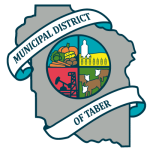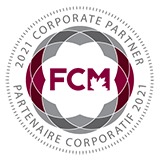One of the most significant civic duties is the management of a municipality's assets. This is a field that has been emerging and growing in knowledge and importance over the past few years.
It seems to me that British Columbia has emerged as the leader in Asset Management, and that view was reinforced last week at the BC Asset Management conference in Vancouver. It attracted delegates from across the prairies and northern US states.
I was honoured to be the opening keynote speaker at the conference. It was a standing-room-only crowd in the Hilton ballroom as I talked about leadership in civic government and the new challenges facing Asset Managers. The subsequent questions and discussion were vigorous and thoughtful, and sparked a series of great presentations for the next two days.
What struck me was the breadth of expertise in the room. Different city halls have quite different structures for management of their assets. Background may be in engineering, finance, public administration or other. Reporting structures also vary wildly some to the CAO, others to the head of engineering, finance or other management group.
What is undeniable is the increasing awareness of the importance of asset management by government and municipalities are usually the largest owner of civic assets.
I am a supporter of a very broad definition of municipal assets. A park can be just as important as a water system; a library can be as needed as a modern road system. They all play a vital role in the economic, cultural, social and environmental pillars of any town or city.
One common thread that I emphasized in my remarks has been the lack of public communication about asset management by city hall. The public is generally unaware of the breadth and depth of civic assets, their value and their importance to the local quality of life. This is somewhat typical of local government, however generally in Canada we have failed to impress upon our taxpayers the value of the services the municipality provides, and the impact it has on their daily lives.
It costs what, one or two cents to flush a toilet? Nobody thinks about it until the morning you can't flush! Then your priorities change really quickly!!
Yet many municipalities across Canada are still not doing full cost-recovery for their water and waste-water systems. The public is really smart they understand there is no free lunch. But if the local municipality is not informing and educating the public about these situations, and helping them to understand the really critical urgency of improving a municipality's finances and obligations to serve the public in so many different forms today, then few citizens will understand this bigger picture' of civic assets and what a municipality has to do to manage them effectively and efficiently.
The BC Asset Management conference was just another important step in help Canadian municipalities understand the urgency and necessity of vigorous and rigorous asset management strategies and plans. As infrastructure opportunities to rebuild, and to plan bold new projects emerge with the new Canada Infrastructure Bank and enhanced federal funding, asset management will only become more important inside our city halls and throughout our communities.














